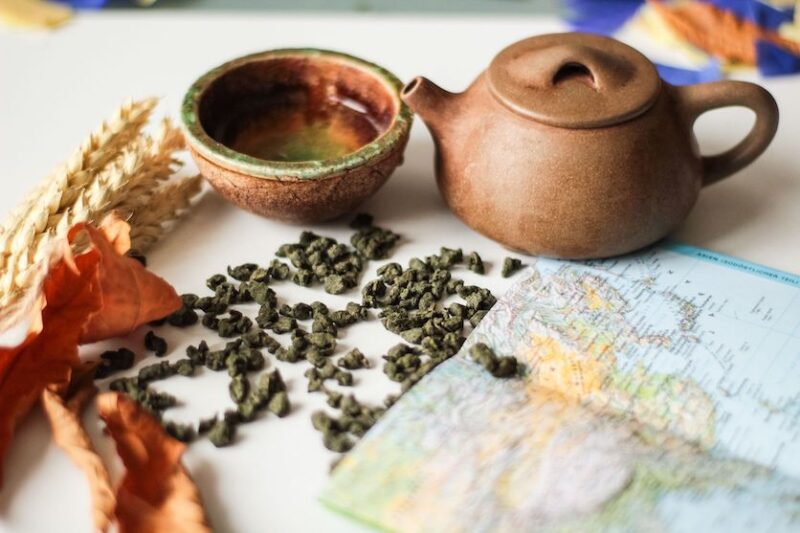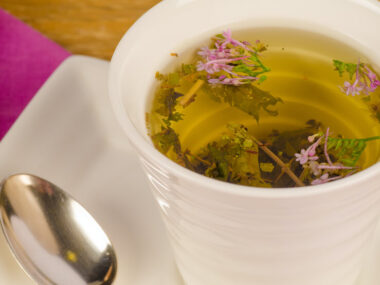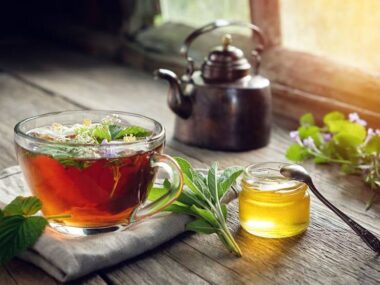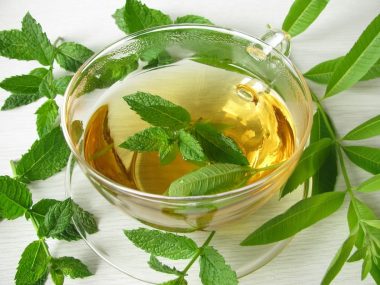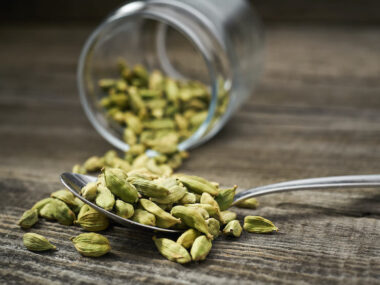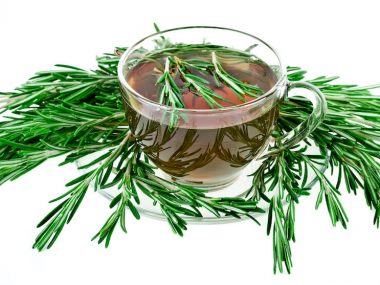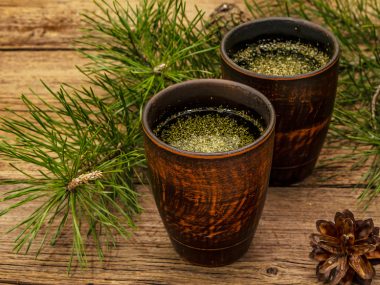We have something that’s definitely going to pique your curiosity, especially if you are an herbal tea drinker. It all begins with an unassuming plant that bears a spine-covered fruit. As unassuming as that plant may be, it got the world in an uproar. Meet the soursop tea!
Table of Contents
What Is Soursop Tea?
Soursop tea is a tisane (herbal tea) made from parts of the Annona muricata (soursop plant) which is native to North and South America, India, Nigeria, and Malaysia. The fruit of this plant is known as “graviola,” and “guanabana.” You’ll hear many people refer to soursop as “paw paw.” However, soursop is not a paw paw. It’s another species. Paw paw comes from Asimina Adans, whereas soursop comes from Annona muricata.
The strange-looking soursop fruit looks like a green mango with spikes. Soursop belongs to the Annonaceae family of custard apple plants. The flesh of the fruit is both sweet and sour with a consistency of custard. Claims have it that the plant got its name from the sound people make as they devour the sourish yet sweet insides.
The plant’s leaves, stems, and fruit have long been used in traditional medicine for various ailments. The fruit was specifically used to target pain in the joints and digestive ailments. Leaves, on the other hand, were used to make teas and tinctures for rheumatism, neuralgia, insomnia, diabetes, headaches, and cystitis. Seeds are crushed to treat external parasites.
Today, the use of soursop in traditional medicine is said to help relax muscles, act as a sedative, work as an anti-inflammatory, anticancer, and help with diabetes. In many countries, soursop is incorporated into ice creams, drinks, and syrups.
Uses Of Soursop
Soursop contains a highly coveted pudding-like flesh. Many people simply cut the fruit open and use a spoon, begin to eat, and enjoy it. Various cultures also use soursop in breads, desserts, and sauces. If you were to thoroughly mash a banana, its consistency and appearance would look very much like soursop.
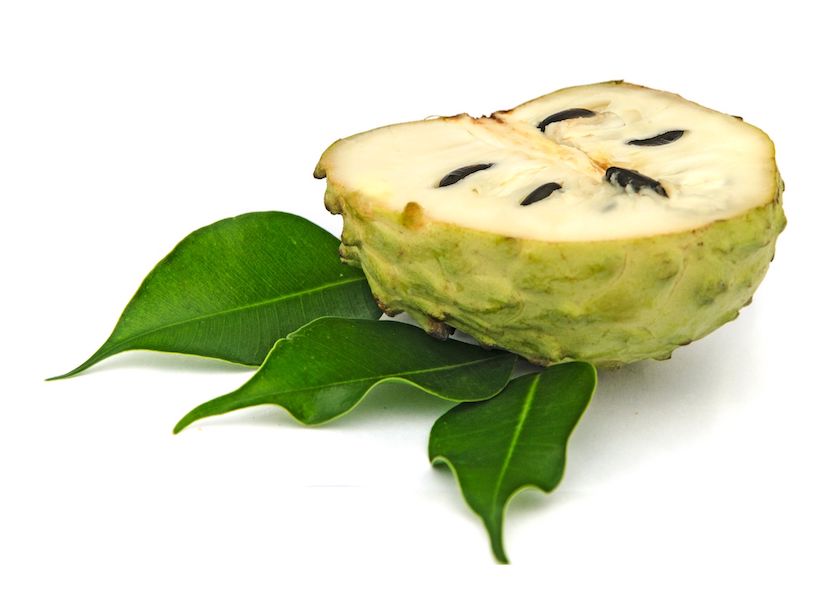
Cultivation Of Soursop
Surprisingly, soursop is grown throughout the world and even right here in our backyard in the U.S. Exotic fruit traders sell soursop to supermarkets and produce retailers. You won’t find this fruit bellied up in the produce aisle next to pineapples, oranges, etc. It is typically in an area where exotic fruits are displayed and sold.
How Much Caffeine in Soursop Leaf Tea?
Soursop tea does not contain any caffeine because it is a tisane (herbal tea.) For tea to be caffeinated, it must come from black or green tea (Camellia sensitisis.) Occasionally tea drinkers or tea makers will blend soursop tea leaves with another tea such as black, green, oolong, etc. In such a case like that, there will be caffeine in soursop tea because of the other tea blended in.
What Does Soursop Tea Taste Like?
One would expect soursop tea to have a fruity, floral flavor because of the exotic custard-like fruit. The flavor of the fruit is strawberry-pineapple. However, to the dismay of many, this tea is earthy all the way. Claims have been made about it tasting like soil, grassy, or vegetal, while others say it’s similar to chamomile’s mild and delicate taste.
So Can I Drink Soursop Tea Every Day?
We are by no means experts in recommending whether or not any tea is safe to consume daily. What we can do is provide you with findings from research studies to provide you some insight into the safety of a tea.
Studies on humans indicate soursop leaf extracts were safe when taken at a dose of 540mg per day for 30 days. Furthermore, the study goes on to state, “For a human to reach the lethal dose of consumption of A. muricata leaf infusion, would require more than 71 cups of tea a day.”
Another study done on humans with regard to soursop found that consumption of this plant (tea, supplements, etc.) may cause neurological disorders. Swainsonine is present in the soursop plant, which affects some essential enzymes causing cells to become unable to break down sugar that accumulates in our brain. Toxic doses in livestock have been noted. However, it’s unknown what dosage is toxic for humans.
Yet another study revealed that consuming too much “graviola” (soursop) is linked to an “atypical form of Parkinson’s disease” in Guadeloupe, Guam, and New Caledonia. So to drink this tea daily or not comes down to a personal choice.
Soursop Tea Side Effects
The uncertainty of side effects and toxicity of soursop tea raises many questions. Is it safe to consume? What are the side effects of soursop leaves?
Among many findings out there, one specific study showed that any plant belonging to the Annonaceae family (which includes soursop) has neurotoxic compounds. These compounds are known as acetogenins which are present in the fruit, seeds, branches, and leaves of the plant.
More studies conducted revealed a close correlation of neurodegenerative disease in Guadeloupe Island was linked to consumption of annonaceous acetogenin (found in plants belonging to the Annonaceae family (including soursop.) Researchers involved in the study went on to advise against “excessive and long-term consumption of soursop products” to avoid neurotoxicity.
Given the toxicity of soursop, the plant does offer numerous benefits.
Does Soursop Tea Make You Sleepy?
A study indicates two alkaloids (anonaine and asimilobine) present in the soursop plant affect the central nervous system, which induces a state of relaxation. If your soursop tea just happens to have a black or green tea blend added, the sedating effect may be affected by the caffeine in the black/green tea.
What Are The Benefits Of Soursop Tea?
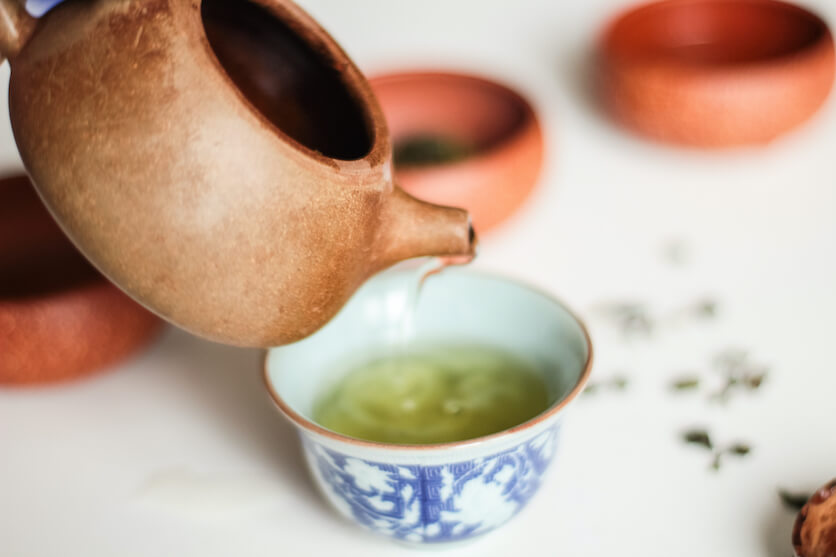
Although there may be long-term side effects of consuming soursop tea, there are some benefits that the plant offers. Both anti-inflammatory and anticancer properties are perhaps why traditional medicine practitioners lean on this plant.
Beneficial phytochemicals in soursop include alkaloids, terpenoids, flavonoids, polysaccharides, lactones, carotenoids, and glycosides. Each of these works in unison to fight cancer and inflammation.
Helps Prevent Stomach Ulcers
The leaves of the soursop plant were studied on how consumption affected the lining of the stomach. Leaf extracts were found to decrease the expression of a particular protein called “Bax.” Bax proteins are expressed when the presence of gastric ulcers, precancerous lesions, or cancerous lesions are present in the stomach.
May Improve Blood Glucose
Scientists who studied rats with diabetes administered an extract of soursop leaves for two weeks. Their blood glucose at the beginning of the study was 21.64 mmol/L. At the end of the two weeks, that level dramatically dropped to 4.22 mmol/L. Additionally, the leaf extract had an overall improvement in cholesterol. The leaf extract was also found to encourage the rat’s pancreas to regenerate new, healthy cells in the islets.
How To Make Soursop Tea
There’s a variety of ways to enjoy soursop tea. We’ve got a few recipes below. Soursop tea may be a bit hard to come by as it’s not a typical tea. It comes in loose-leaf form, as a powder, or in teabags.
Brewed Soursop Tea
This is a traditionally brewed soursop tea that is simple and unadulterated.
Ingredients
- 1 soursop tea bag
- 2 cups of water
- ⅛ teaspoon of honey
Directions
- Bring water to a boil.
- Add teabag and allow to steep for 5 minutes
- Remove the teabag and discard.
- Pour the tea into a teacup and add honey to sweeten.
- Enjoy!
Strawberry-Soursop Latte
This way to enjoy soursop tea has the powerful benefits that green tea offers. The layered dimension of milk, strawberry, and tea is beautiful and delicious.
Ingredients
- 1 teaspoon of soursop tea powder (or 1 soursop tea bags)
- 1 teaspoon of loose leaf green tea (or 1 teabag)
- ½ cup of strawberries (mashed)
- 1 cup of water
- 1 cup of milk
- Ice
Directions
- Bring water to a boil
- Add soursop tea powder and green tea. Steep for 10 minutes.
- Add ice to a glass.
- Pour milk over ice in the glass.
- Add strawberry mash.
- Slowly pour tea into the glass.
- Insert a straw and enjoy!
The “Sour” Side Of Soursop Tea
Studies of soursop tea show there are valued benefits in drinking the tea. However, there’s an overwhelming amount of scientific data that supports the fact that the tea may not be as safe as most assume it to be. Again, we neither recommend nor dispute any relative facts regarding this tea. We can recommend using caution before consuming any herbal tea. Consulting with your healthcare provider is best before enjoying soursop tea.
